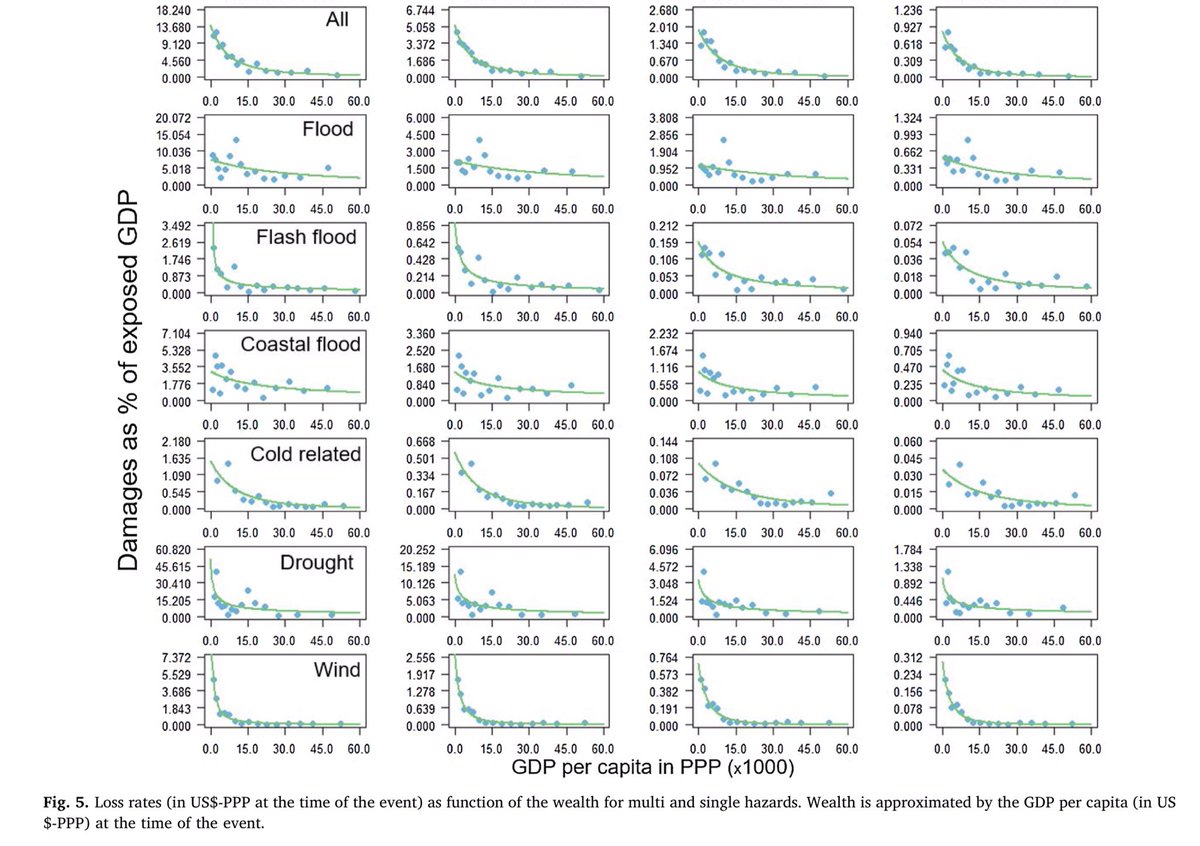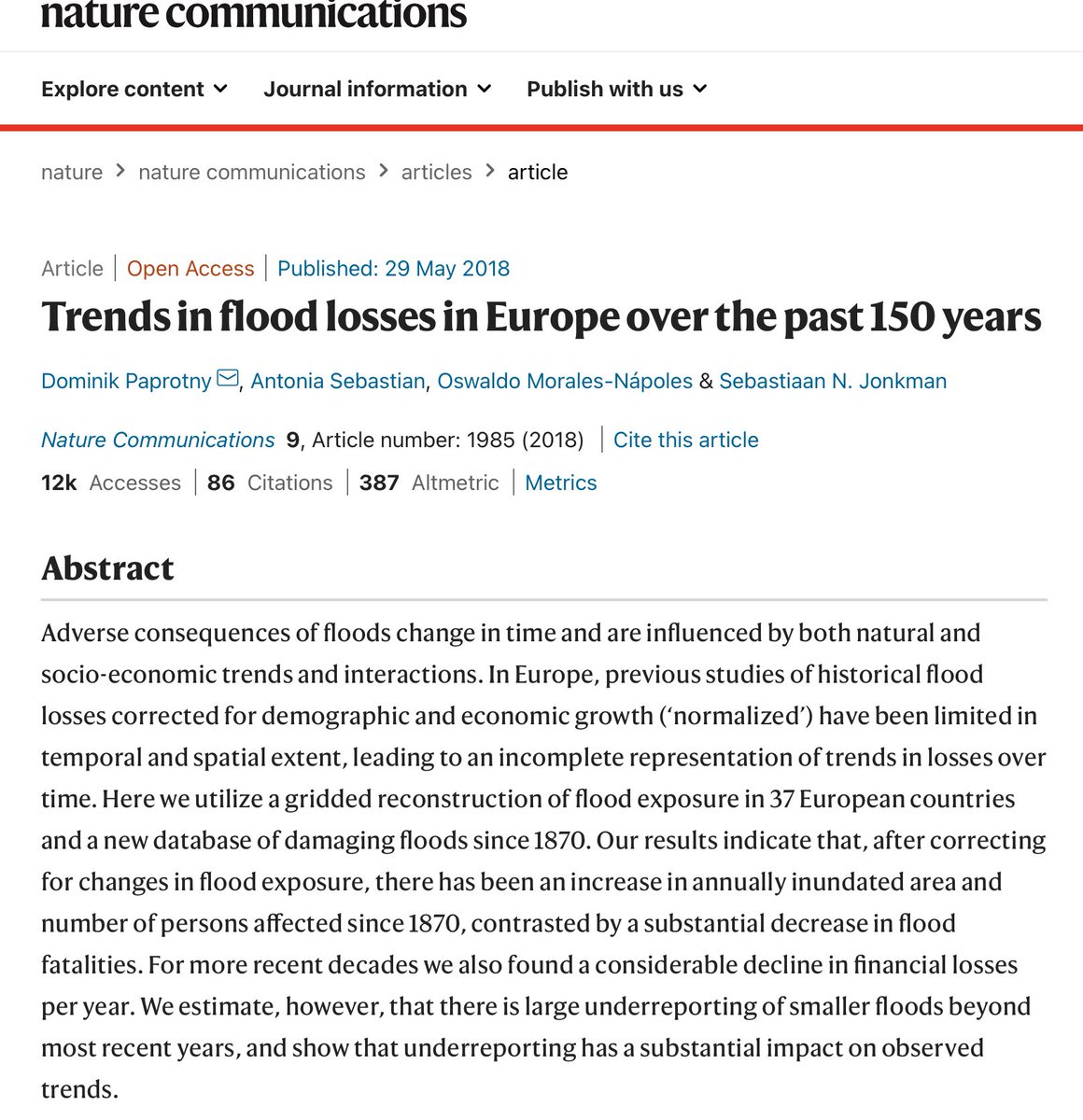
So that was fun
Thanks to @SenateBanking @BankingGOP for the opportunity to testify
Some thoughts on the hearing follow ...
Thanks to @SenateBanking @BankingGOP for the opportunity to testify
Some thoughts on the hearing follow ...
https://twitter.com/RogerPielkeJr/status/1415311461304266760
Testimonies of
Frank Nutter @TheRAA
banking.senate.gov/imo/media/doc/…
@abdshafiee Abdollah Shafieezade
banking.senate.gov/imo/media/doc/…
Smart & w/ much solid policy recommendations to improve resilience & reduce vulnerability
(But both should stop confusing economic loss with climate trends!)
Frank Nutter @TheRAA
banking.senate.gov/imo/media/doc/…
@abdshafiee Abdollah Shafieezade
banking.senate.gov/imo/media/doc/…
Smart & w/ much solid policy recommendations to improve resilience & reduce vulnerability
(But both should stop confusing economic loss with climate trends!)
In most hearings I've been in Ds only engage D-invited witnesses & Rs w/ R-invitees
This wall of tribalism broke down today for just a brief moment
@SenatorTester listened to my testimony & express real surprise to learn that disaster losses are down as % GDP
Two points ...
This wall of tribalism broke down today for just a brief moment
@SenatorTester listened to my testimony & express real surprise to learn that disaster losses are down as % GDP
Two points ...
1. That he didn't know this is a failure of climate science advice. He should know this - it is the @SenateBanking committee with a focus on US GDP
2. He gave the UCS witness a hanging curve & asked her to counter data in my testimony ... she completely dodged the opportunity 🤷♂️
2. He gave the UCS witness a hanging curve & asked her to counter data in my testimony ... she completely dodged the opportunity 🤷♂️
My view that there are 2 frames for extreme weather & climate science currently at odds with each other:
1-A Bumper Sticker (everything is climate change, don't mention nuance, might be misused)
2-Nuanced (actually, climate risk management depends on getting science right)
1-A Bumper Sticker (everything is climate change, don't mention nuance, might be misused)
2-Nuanced (actually, climate risk management depends on getting science right)
There is really no way to reconcile these two perspectives
I do see the Bumper Sticker folks work hard against the expression of Nuanced views, even though the latter is the view of the IPCC, USNCAv1, WMO, peer reviewed lit etc
If you don't ...
I do see the Bumper Sticker folks work hard against the expression of Nuanced views, even though the latter is the view of the IPCC, USNCAv1, WMO, peer reviewed lit etc
If you don't ...
If you don't actually care about scientific accuracy then by all means focus on RCP8.5 and assert that every extreme is getting worse
For instance, advocacy for emissions reductions are insensitive to such inaccuracies - they are just Bumper Stickers for a cause
For instance, advocacy for emissions reductions are insensitive to such inaccuracies - they are just Bumper Stickers for a cause
But for some decisions... like central bank stress testing, US regulatory policy, local adaptation, re/insurance etc scientific accuracy actually matters
I don't actually think accurate science subtracts from the cause of emissions reductions - so why not have accurate science?
I don't actually think accurate science subtracts from the cause of emissions reductions - so why not have accurate science?
Here is my full written testimony
banking.senate.gov/imo/media/doc/…
I am happy to hear your reactions and comments
🙏
banking.senate.gov/imo/media/doc/…
I am happy to hear your reactions and comments
🙏
• • •
Missing some Tweet in this thread? You can try to
force a refresh

















